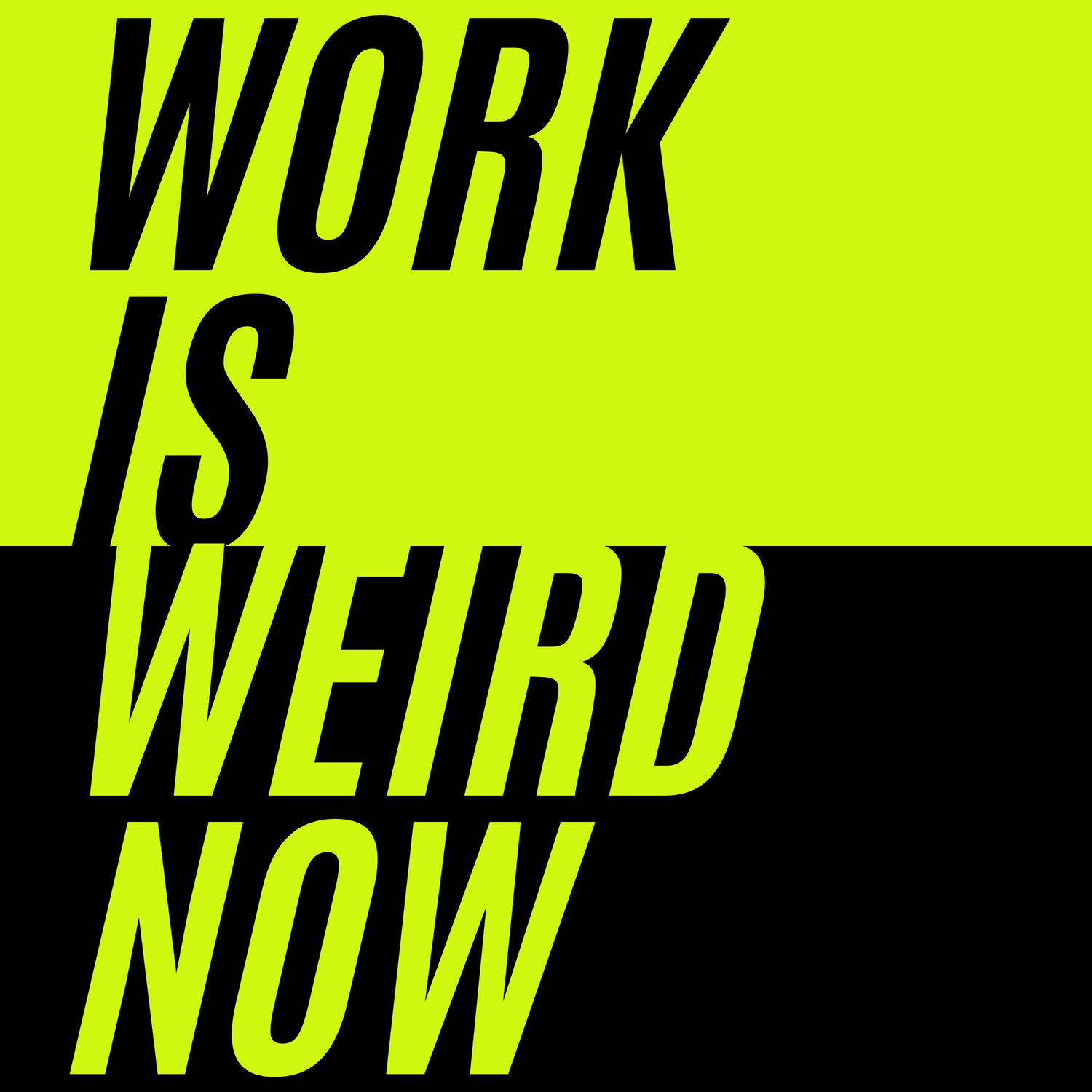is education preparing children for work?
In nearly every episode of Work Is Weird Now, one theme keeps coming up—education. Specifically, the disconnect between what school teaches and what the world of work now demands. So we decided to dedicate an entire conversation to that gap—and invited someone who’s living it every day.
Our guest this week is Sarah Thomas, an Assistant Head at an independent secondary school in the UK with over 15 years’ experience in the state sector. She’s deeply thoughtful, fiercely realistic, and—as you’ll hear—committed to making education work for young people even as the system around them shifts.
Here’s what we unpacked.
Is the point of school really to prepare us for work?
Spoiler alert: not entirely.
Sarah reminds us that when you drop your four-year-old off at school for the first time, you're probably not thinking, “Hope this turns them into a productive employee!” And yet, employability is one of the main ways we judge whether education ‘works’.
So how do we balance that with all the other things schools are meant to do—like foster social connection, develop a sense of self, or support children’s wellbeing?
Knowledge vs. skills: A false choice
We loved Sarah’s clear—and deeply researched—challenge to the idea that school should prioritise skills over knowledge because “kids can just Google it now.”
Not true, she says. To evaluate information, make good decisions, or write a useful ChatGPT prompt, you need domain expertise. Skills don’t exist in a vacuum—they rest on a bedrock of knowledge.
In a world where information is everywhere but trust is scarce, education’s job isn’t just to deliver facts—it’s to build informed, questioning citizens who can navigate complexity.
The pandemic changed everything
From rising anxiety to school avoidance to a surge in special educational needs, schools are still absorbing the aftershocks of COVID. And they’re doing it with tighter budgets, fewer staff, and more pressure than ever.
Sarah highlights how attendance has become one of the biggest challenges—particularly for children with anxiety or additional needs. And while schools are adapting, they can’t do it alone.
Work experience is broken—and that’s a big problem
Everyone remembers their work experience week. For some of us, it was a revelation. For others, it was walking dogs or stuffing envelopes and wondering what this had to do with real life.
But it matters. It’s one of the only times school-aged kids get to step into the world of work—and for many in the state sector, it’s their only professional network. And yet, opportunities are patchy, inequitable, and often limited to what schools or parents can arrange.
Sarah makes a powerful call for businesses—especially small ones—to get involved. Offer a placement. Be a guest speaker. Share your story. If you want a better-prepared workforce, help prepare them.
The bigger picture: Education isn’t just a pipeline—it’s a public good
Sarah makes it clear: we’re asking schools to do everything—academic instruction, mental health support, social care delivery, future workforce prep—with fewer resources and bigger challenges than ever.
If we want education to keep up with the changing world of work, we need to:
Invest in social care so schools aren’t trying to solve everything alone
Support early years and family services, not just secondary reform
Rethink what success looks like in a world of shifting careers and AI disruption
Final takeaways
Young people aren’t lazy or entitled. They’re navigating complexity we didn’t face—and doing it with grit, curiosity and awareness. Let’s stop blaming them and start backing them.
Education reform needs to be slow and deep. The flashy stuff (teach AI! Drop history!) misses the point. Foundational knowledge, critical thinking, and social connection still matter.
Work and school need to talk more. This is your invitation: if you’re running a business, managing a team, or mentoring someone—step into a local school. Offer your time. Share your perspective.
Because work is weird now. But so is school. And neither system can change alone.
Listen now
Catch the full episode on Spotify, Apple Podcasts or wherever you get your audio fix. And if you’ve got thoughts, stories, or want to open your workplace to work experience students, let us know. We'd love to hear from you.
